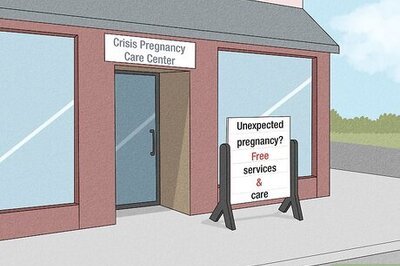
views
MOSCOW/WASHINGTON: The prospects for extending the last treaty limiting U.S. and Russian strategic nuclear weapons deployments appeared to grow bleaker on Friday, with Washington rejecting a Russian proposal for an unconditional one-year extension as “a non-starter.”
The New START (Strategic Arms Reduction Treaty) accord, signed in 2010 and due to expire in February, restricts the numbers of strategic nuclear warheads that Russia and the United States can deploy as well as the missiles and bombers that carry them.
A failure to extend the pact would remove all of the constraints, threatening to fuel a post-Cold War arms race and tensions between the world’s two largest nuclear weapons powers.
Russian President Vladimir Putin, speaking at a meeting by video link with Russia’s Security Council that was broadcast on state television, said the treaty had worked effectively until now and it would be “extremely sad” if it were to stop working.
“In this regard, I propose … extending the current treaty without any conditions for at least a year so that meaningful negotiations can be conducted on all the parameters of the problems …,” he said.
Hours later, U.S. President Donald Trump’s national security adviser, Robert O’Brien, rejected Putin’s proposal.
O’Brien reiterated that the United States had proposed extending the accord for one year, during which deployments of all nuclear weapons – strategic and tactical – would be frozen.
“President Putin’s response today to extend New START without freezing all nuclear warheads is a non-starter,” O’Brien said in a statement. “We hope that Russia will reevaluate its position before a costly arms race ensues.”
The accord can be extended for up to five years beyond its Feb. 5 expiration by agreement of the Russian and U.S. presidents.
Russia and the United States, which has called for China to be included in a new multilateral arms control treaty that would replace New START, have been at odds over extending the pact despite several months of talks.
On Wednesday, Moscow denied U.S. assertions that the two sides had reached an agreement in principle.
Disclaimer: This post has been auto-published from an agency feed without any modifications to the text and has not been reviewed by an editor
Read all the Latest News and Breaking News here












Comments
0 comment